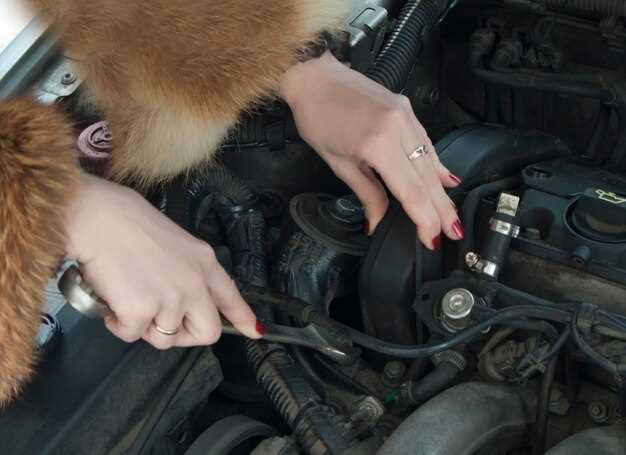

The cooling system in a Ford Mustang is crucial for maintaining optimal engine temperature and preventing overheating. Overheating can lead to severe engine damage, reduced performance, and costly repairs. Therefore, understanding common cooling system issues is essential for Mustang owners who want to ensure their vehicles run smoothly.
One prevalent issue is the failure of the radiator, which can occur due to corrosion or physical damage. A damaged radiator can lead to coolant leaks and poor heat dissipation, resulting in elevated engine temperatures. Additionally, a faulty thermostat can restrict coolant flow, hindering the system’s ability to regulate temperature effectively. Recognizing these problems early is vital in preventing further overheating issues.
Moreover, weakened hoses and connections can also contribute to cooling system failures. Over time, hoses may become brittle or develop leaks, leading to coolant loss. It’s important to regularly inspect these components and replace them as needed. By addressing these common issues proactively, Mustang owners can avoid overheating and ensure the longevity of their vehicle’s engine.
Common Causes of Overheating in Mustang Vehicles

Overheating in Mustang vehicles can be attributed to various factors, compromising their performance and reliability. Understanding these causes is essential for effective troubleshooting and maintenance.
One of the primary reasons for overheating is a malfunctioning radiator. If the radiator is clogged or damaged, it cannot effectively dissipate heat from the engine. This situation leads to excessive temperature rise, as the coolant struggles to flow properly through the system.
Another common culprit is a low coolant level. Inadequate coolant restricts heat transfer, leading to higher engine temperatures. Leaks in the cooling system can cause coolant loss, necessitating regular checks to ensure optimal levels are maintained.
A failing water pump can also contribute to overheating issues. The water pump is responsible for circulating coolant throughout the engine and radiator. If it becomes worn or damaged, the flow of coolant diminishes, leading to insufficient cooling.
Additionally, a malfunctioning thermostat can prevent coolant from flowing into the radiator at the right time, causing the engine to overheat. A stuck thermostat can trap hot coolant in the engine, significantly raising temperatures.
Finally, a faulty fan or fan relay can hinder airflow across the radiator. If the cooling fan fails to engage when needed, the overall temperature of the engine can rise, particularly in stop-and-go traffic or during heavy acceleration.
Addressing these common issues promptly can help prevent overheating in Mustang vehicles, ensuring optimal performance and longevity.
Identifying and Fixing Radiator Problems
Radiators play a crucial role in the cooling system of a Mustang, and any issues can lead to overheating, potentially causing severe engine damage. Identifying radiator problems early can save time and money in repairs.
Common symptoms of radiator problems include coolant leaks, visible corrosion, and reduced coolant levels. If you notice any puddles under your car, it’s essential to check for leaks. Inspect the radiator for cracks or damaged hoses, as these can lead to significant coolant loss.
Another sign of radiator issues is inconsistent or rising temperature readings on the dashboard gauge. If the temperature is higher than normal, it may indicate that the radiator is clogged or that the thermostat is malfunctioning. A thorough flushing of the radiator can often resolve clogging issues, restoring proper coolant flow and preventing overheating.
Rust and corrosion can also hinder radiator efficiency. Regular inspections can help catch these problems early. If corrosion is present, replacing the radiator might be necessary to ensure optimal operation.
Fixing radiator problems often involves routine maintenance. Regularly checking coolant levels, inspecting hoses, and performing a flush can help maintain the radiator’s performance. If problems persist, it’s advisable to consult a professional mechanic who can diagnose and repair more complex issues.
In conclusion, being proactive about radiator maintenance and monitoring for signs of overheating can prevent long-term damage to your Mustang’s engine. Address issues promptly to keep your vehicle running smoothly.
Preventative Maintenance Tips for Mustang Cooling Systems

Proper maintenance of the cooling system in your Mustang is crucial to prevent overheating and ensure optimal engine performance. Regular checks and servicing can significantly extend the life of your vehicle’s components. Here are some essential preventative maintenance tips:
1. Regularly Inspect the Radiator: Check the radiator for any signs of corrosion, leaks, or damage. Ensure that the fins are not clogged with debris, as this can hinder airflow and cooling efficiency.
2. Maintain Coolant Levels: Always keep an eye on the coolant level in the reservoir. Low coolant can lead to overheating, so refill with the appropriate mixture of antifreeze and water as needed. Flush the system every couple of years to prevent buildup and maintain circulation.
3. Check for Hoses Damage: Inspect the hoses connected to the radiator for any cracks, bulges, or leaks. Replacing worn-out hoses can prevent coolant loss and help maintain pressure in the system.
4. Monitor the Thermostat: A malfunctioning thermostat can cause overheating or insufficient heating of the engine. Test the thermostat regularly and replace it if it shows signs of wear or failure.
5. Audibly Listen for Noises: Strange sounds coming from the cooling system, such as bubbling or hissing, can indicate problems. Address any unusual noises promptly to avoid further damage.
6. Ensure Proper Fan Operation: Make sure the cooling fan is working efficiently. It should turn on when the engine reaches a specific temperature, helping to maintain optimal cooling conditions.
7. Avoid Mixing Coolants: Always use the same type of coolant specified for your Mustang. Mixing different types can cause chemical reactions that may lead to corrosion and system failure.
8. Schedule Regular Inspections: Have a professional mechanic inspect your cooling system during routine service intervals. Early detection of potential issues can save you from major repairs in the future.
By following these preventative maintenance tips, you can help ensure that your Mustang’s cooling system functions effectively, keeping your engine cool and extending the lifespan of your vehicle.





